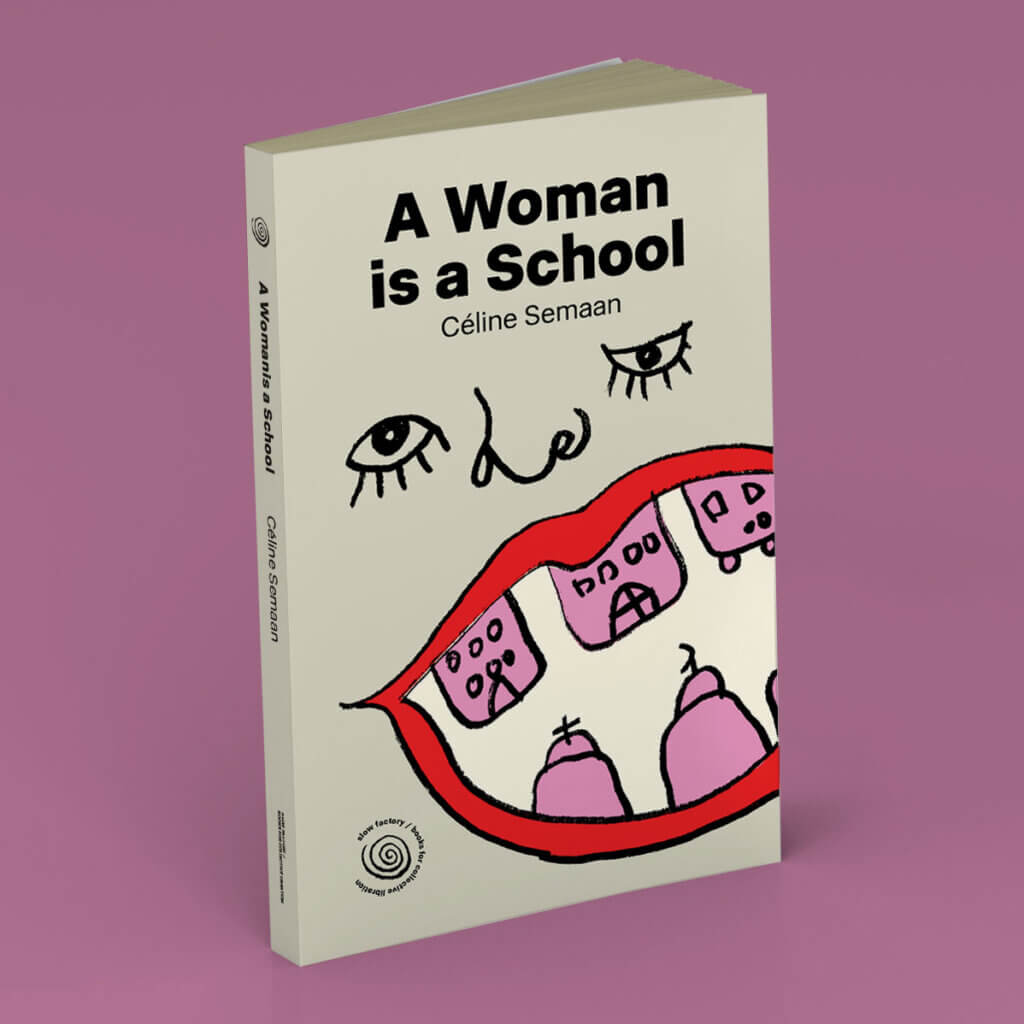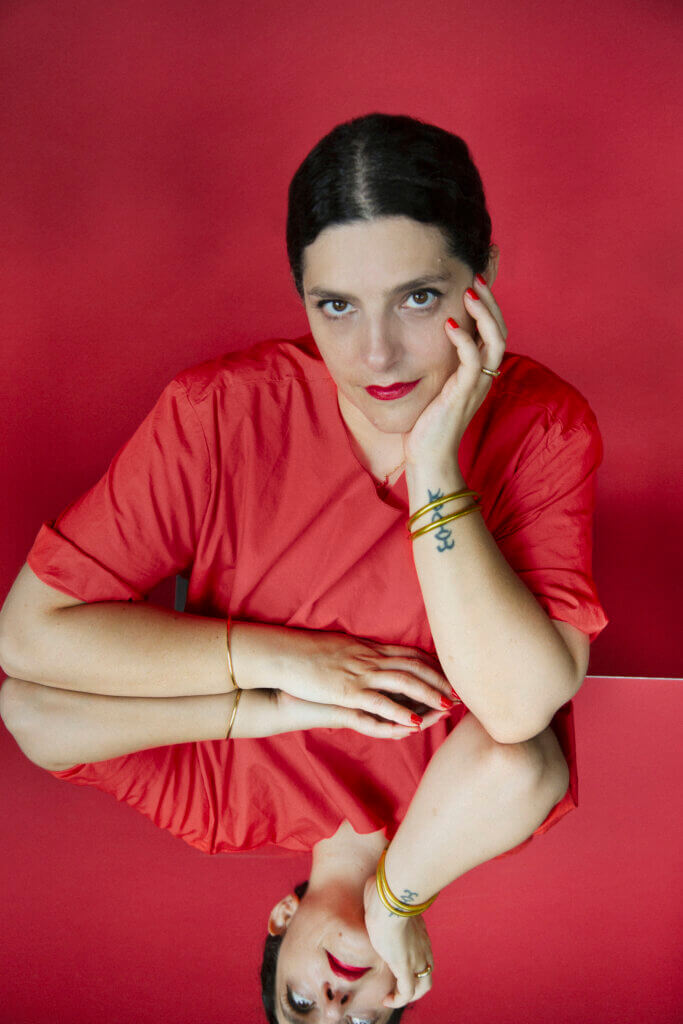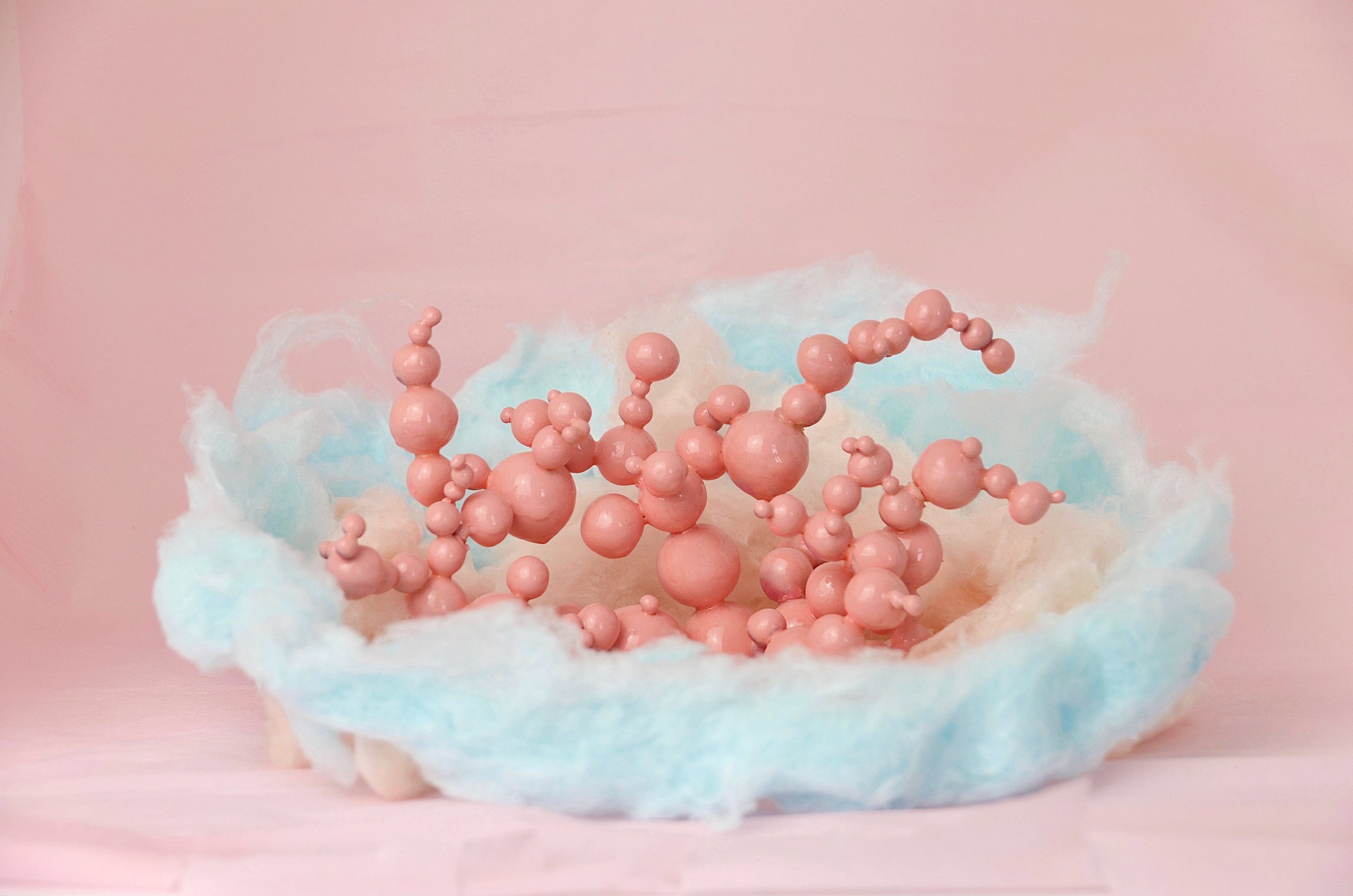Language as Sacred Rebellion
Language is power. It can shape realities, amplify resistance, or serve as a tool of control—dictating what can be spoken and even imagined. The surge in book bans and the deportation of students in solidarity with Palestine across the U.S., alongside the global rise in censorship of voices advocating for justice, demonstrates how language is weaponized to sustain oppressive systems. In this context, writing and publishing a book becomes a means of disrupting the forces that seek to silence and erase.
In A Woman is a School (2024), Céline Semaan—founder of The Slow Factory—embodies language as a sacred rebellion. Weaving personal and political narratives, she reclaims language as a channel for healing, dismantling patriarchy, imperialism, capitalism, and white supremacy. These systems that have long sought to sever us from the innate wisdom embedded in our bodies, lands, and memories. For Semaan, language is an act of joyful defiance, one that honors ancestry while forging new paths toward eco-liberation.

This book review taps into that force. It reminds us that in times of struggle, language and our collective body—through their multiple expressions—remain our most vital allies in resistance and hope.
Reclaiming the Body: “We Are The School”
If language has the power to liberate, then the body is where learning begins. In a world where knowledge is extracted, distorted, and controlled, the body carries an enduring wisdom—one that dominant systems cannot contain. Céline Semaan reminds us what has been suppressed for generations remains alive within.
In this school of the body, we remember that true education isn’t something imposed from above, it is an inheritance carried within us waiting to be reclaimed. By listening to the body—our own, each other’s, and the Earth’s—we access knowledge passed down through ancestral lines. From human and more-than-human.
Semaan’s approach of the body as a school offers a radical shift from conventional pedagogies: it teaches us to honor what institutions overlook. To reclaim what was taken and to reawaken the wisdom embedded in our cells and spirits. Eco-liberation is not an abstract ideal but something lived through the stories we speak, sing, dance, write, in the ways we inhabit our bodies, and how we move through the world.
This embodied wisdom does not exist in isolation. It extends into the collective body of movements that challenge systems of control. Student uprisings across borders and generations carry this knowledge forward, transforming classrooms, campuses, and streets into sites of radical learning. In reclaiming spaces to organize, speak up, and learn freely, we enact what Semaan teaches: liberation is something that is felt, practiced, and lived together. Resistance is a way of remembering what we already know.
Intersectional Feminism, Indigenous Cosmovision & Climate Justice
Just as we reclaim the body as a source of emancipation, we honor the intergenerational leadership of women and Indigenous communities fighting for a just, thriving Planet. In this broader context, Semaan’s narrative draws a direct connection between the healing of our bodies and the healing of the Earth. This emphasizes the entanglement of struggles for gender equality, climate justice, racial and class justice, and personal trauma.
Women, Indigenous women in particular, have long been at the forefront of these movements carrying the weight of historical oppression, while shaping new futures through resilience, community, and radical imagination. Céline Semaan’s writing recognizes that the healing of one generation is deeply connected to the next. As a Lebanese woman, mother, and war survivor, her body holds both ancestral wisdom and the ongoing violence inflicted by Western imperialism in Arab countries—from Lebanon to Syria, Palestine, and beyond.
Semaan’s narrative urges us to recognize that the fight for a just world requires rejecting systems that exploit both land and people, especially women and Indigenous communities. At the heart of this revolution is the feminine, a call to divest from toxic masculinity, the force which drives overconsumption, exploitation, and environmental destruction. Eco-feminism, rooted in Indigenous cosmovisions across the planet, embraces values of balancing, caring, and connecting.
In this call for solidarity, Céline Semaan emphasizes the importance of honoring women as mothers, daughters, warriors, caretakers, activists, queers, and rebels, empowering us to define ourselves on our own terms. Standing together affirms a commitment to a liberated world where all bodies, lands, and lives are sacred.
Justice Beyond Peace: Transforming Systems with Solidarity
The power of A Woman is a School resides not only in its critique of systems of oppression but in its call to action. It invites us to listen to the voices that have been silenced, to embrace our own, and to stand in solidarity as we strive for liberation and justice. True peace can only be achieved by dismantling the structures that keep us in bondage.
Calling for their protection—from Indigenous wisdom and feminist traditions of the Global South to student movements around the world that honor the sacredness of water, land, and the body—Semaan’s work reminds us that our wisdom and spirit endure. We are alchemists capable of transforming the systems that seek to destroy us. In our collective refusal, we find our strength. And in our collective healing, we unlock our power creating pathways that didn’t exist before. Rooted in the living archive of our bodies, we claim our rightful place in the continuum of movements that have long fought for justice, daring to envision a world where our struggles and dreams are interwoven. In listening, speaking, writing, unity, and resistance, we reshape realities. This is not the time to give up, it is the time to dare to believe in continuity. We must remember: none of us is free until all of us are free.

ABOUT THE AUTHOR
Céline Semaan has spent the past two decades merging design, sociology, material science, and accessibility to tackle climate change and social injustice. Semaan is an award-winning equity climate designer and co-founder of Slow Factory working toward regenerative, reciprocal systemic change. Her art is held in major museums, including de Young, MoMA, and Cooper Hewitt. Her debut book, A Woman is a School, is published with Slow Factory Press. She has contributed essays and reports to The Cut, Vogue, Elle, Teen Vogue, and Slow Factory’s white papers. As an educator, her methodologies have shaped climate justice in academia, fashion, waste industries, and material science through the Open Education platform.
Photo credits: Sunny Shokrae




























